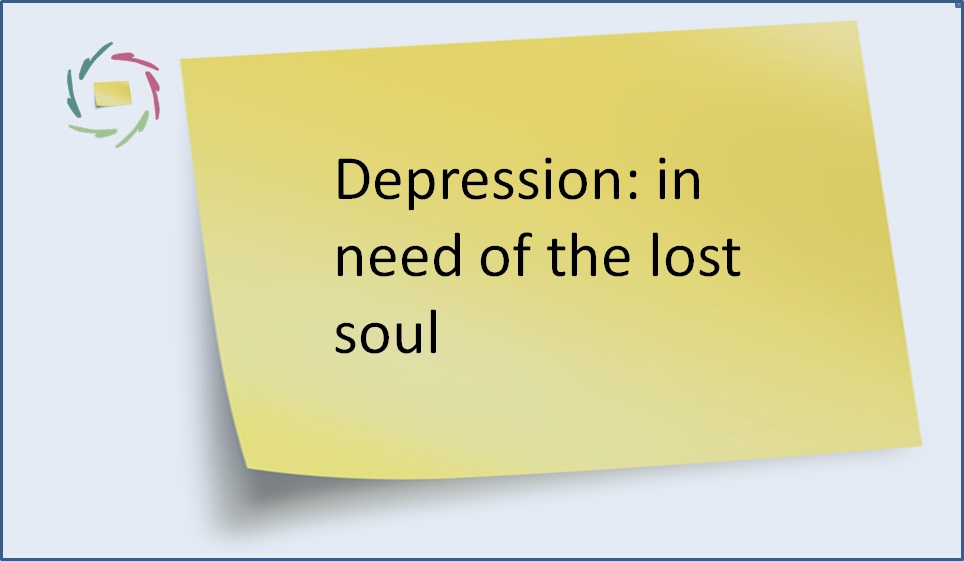11. Depression: in need of the lost soul

According to medical textbooks, depression is defined on the one hand as a number of symptoms: seeing the future bleak, having profound feelings of guilt and hopelessness, appetite and sleep disturbances etc. On the other hand, it’s looked upon as a hormonal or brain transmitter disorder.
◊◊◊
So we have the symptoms and we have the cause of this ‘disease’… Wait a minute! Are we not forgetting something here?
◊◊◊
Yes. We’re forgetting the ‘soul’. How is this possible? We’re so used to looking at depression as a medical disease and to looking at medicine as certainly and extremely not soul-related, that we’re just all-in-one even forgetting the possibility.
◊◊◊
But look at some terms that come to us from many centuries of wisdom. A depressed person feels ‘dispirited’. He has troubles being ‘motivated’ by something… anything. There is ‘no fire burning inside’. He may have a ‘burn out’. Nothing ‘really speaks to him’. Nothing ‘profoundly touches him’. Nothing seems ‘attractive’.
◊◊◊
So: what is this ‘spirit’ (as in ‘dispirited’), or ‘fire inside’? What is not ‘motivated’ (Latin for ‘moved’)? What is not ‘profoundly spoken to’ or ‘touched’? Always the same: not some superficial layer but indeed the ‘deeper side’ of a person. That what one may call ‘deeper self’ or ‘soul’ in religious terms.
◊◊◊
A ‘soul’ of course does not disappear. It’s there all right, but the contact with it is lost. This loss of contact, and the suffering from it, provokes the symptoms.
◊◊◊
This translates itself in what can be seen and investigated physiologically and biochemically, of which we at present surely still know hardly anything.
◊◊◊
Therefore a depressed person is before anything else a person in need of his lost (contact with) soul. He should in the first place be treated as such, shouldn’t he? According to me, in order to renew this contact, a whole person is needed, namely: the depressed person himself. He can be helped quite a lot in this journey towards inner ‘healing’ (this is: becoming whole again, re-connecting to the soul again), but it cannot be done for him. Therefore, he needs to be involved and supported as much and as to-the-point as possible. Every person who is not supported this way is a disgrace to the society he or she lives in
◊◊◊
A further question can be raised: if someone suffers from loss of soul and is ‘cured’ by taking away the suffering itself, is that person then really ‘cured,’ even if he feels better? Or is the ‘real disease’ rather the loss of (contact with) soul itself? And: how do you call someone who has a ‘loss of soul’ and lives on without suffering from this, such as through being numbed by medication? I’m afraid I call such a person a zombie.
◊◊◊
This is really, really, really deep stuff.
◊◊◊


